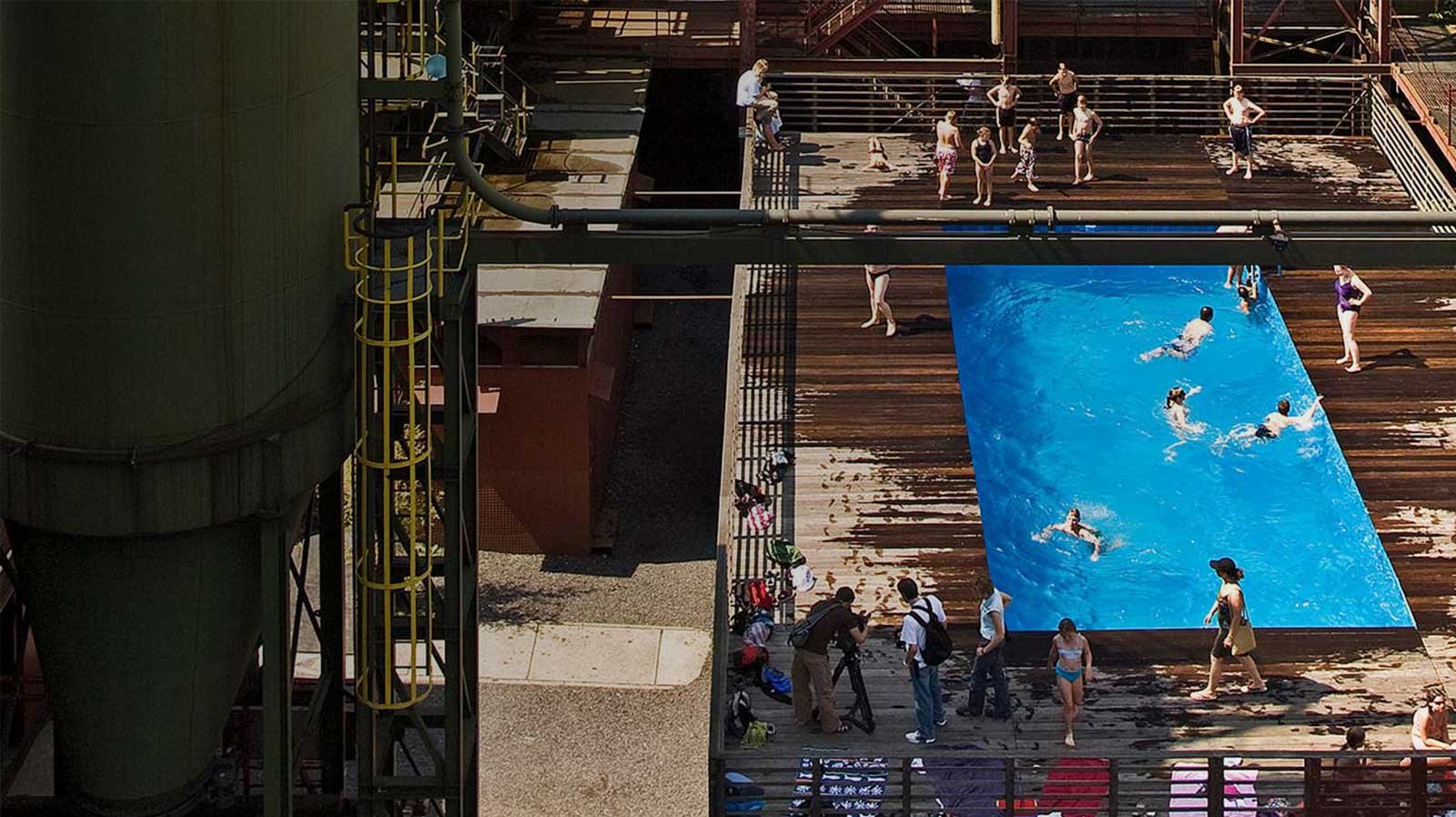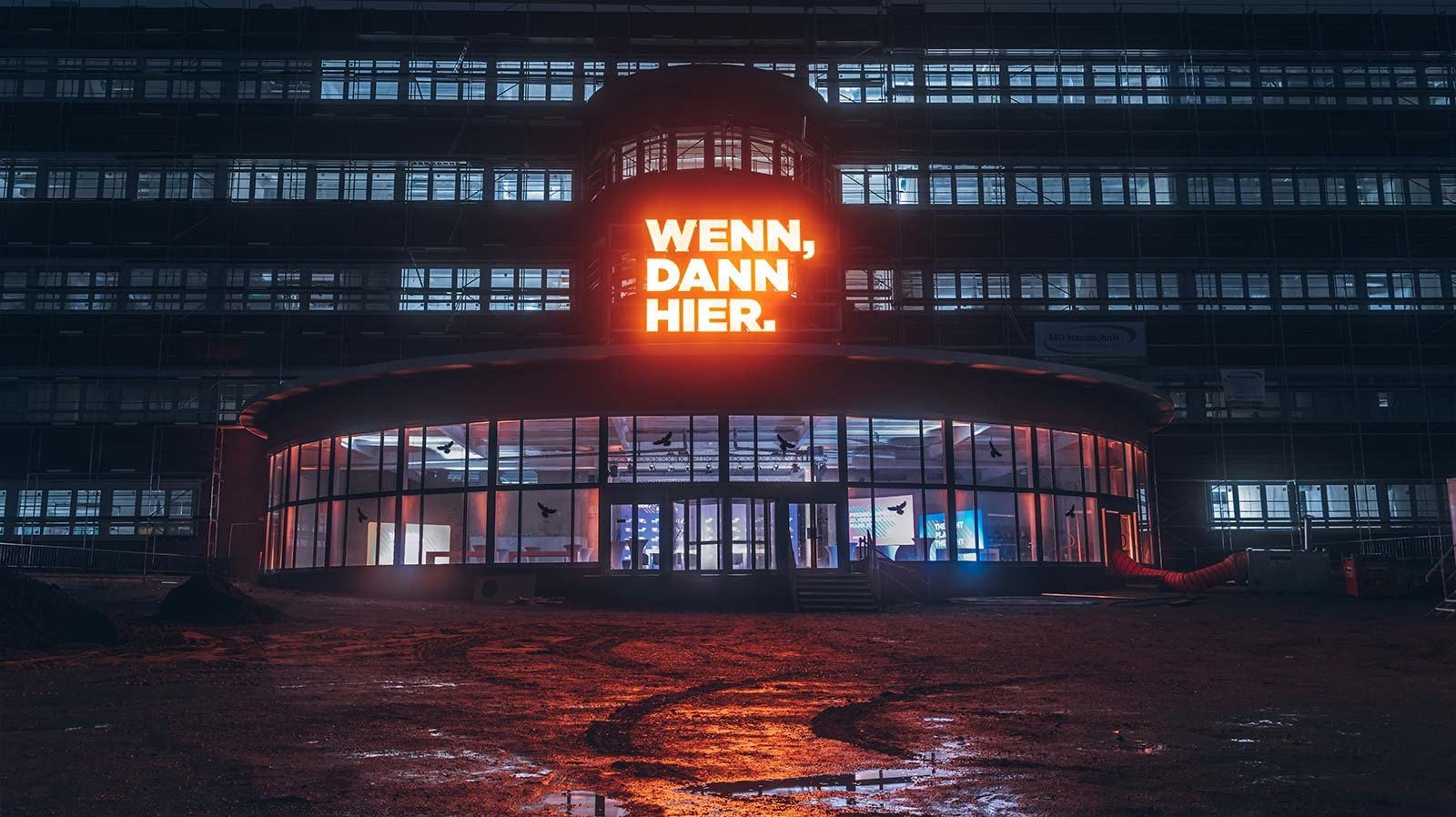
The new Berlin? Never fear, the Ruhr will still be the Ruhr: one of a kind, down to earth, open to change. But glancing at the nation’s capital is worth it just the same. Because the Ruhr is primed for an economic upswing much like the one seen recently in Berlin. This is borne out by the results of a study shown here.
In a new study* the Ruhr metropolitan region was compared with Germany’s seven largest metropolitan regions. The results indicate that in many areas the Ruhr is currently in a position similar to that of Berlin in the early 2000s. In particular, these are the facts that point to the cities developing with similar dynamism in coming years.
Cheaper Housing
Germany-wide, the Ruhr offers the cheapest urban housing – even in a time when space is becoming particularly rare and costly.
Affordable housing has for some time now been nothing to take for granted in Germany’s metropolitan areas. While rent prices in cities like Berlin, Hamburg, or Munich have risen sharply in recent years, renters in the Ruhr region can relax. At just 6.26 euros per square meter prices here are on average nearly 2 euros cheaper than in the Berlin-Brandenburg region and almost 5 euros less than in Munich. And for those who would rather invest in real estate in the Ruhr than pay rent, you can factor prices of on average 1,796 euros per square meter into your calculation – and that, no other urban center can match. In Berlin, prices in the early 2000s were also low – which attracted people in the creative industries, university students, and young families, who in turn helped shape the city’s economic boom. A good omen for the Ruhr metropolitan region.
Better Learning
The Ruhr region boasts the highest number of university students per resident and the most universities and colleges geographically – meaning it is cultivating a network of young professionals who will help shape the region’s development.
To find Germany’s 600-year-old universities, look in places like Heidelberg, Cologne, Erfurt, or Würzburg. In the Ruhr, the first university – in Bochum – wasn’t founded until 1962. It was, however, a pioneer for such a strong development that the region now leaves even those tradition-rich university towns in the dust. The Ruhr metropolitan region now counts 22 universities and colleges and is home to the densest network of academia in Germany. But even more importantly, these universities and colleges are competitive institutions, particularly in future-relevant topic areas. This is evidenced, for example, by the high number of degrees obtained in the so-called MINT subjects of mathematics, informatics, natural sciences, and technology. Places specifically focused on these areas like Munich and Stuttgart are ahead of the Ruhr by only a narrow margin.
The students play a key role as well in shaping the Ruhr. At 49 university students per 1,000 residents, the Ruhr valley has a rate higher than anywhere else in Germany. This large number of recent graduates provides an enormous source of forward-thinking young professionals for companies in the Ruhr area to tap.
More to experience
Diversity beats blah: the Ruhr region has the largest number of areas for leisure activities and recreation, including all kinds of new spaces where a diverse cultural and creative scene is blossoming.
Smoldering smokestacks, a black, sooty sky: for those that don’t know the Ruhr valley themselves, this is often the picture that dominates their imagination. But for those who call the Ruhr their home, the region is something very different, namely: green. The proportion of areas available for sport, leisure activities, and recreation is higher in the Ruhr metropolitan area than anywhere else in Germany. On 16.5 percent of the Ruhr’s area, people are free to frolic, stroll, and breathe deep.
The industrial legacy lives on, however – and provides the extraordinary backdrop for culture: an industrialist cultural scene wholly unique to the Ruhr region. Old factories serve as the host sites for a wide range of artistic and cultural offerings. Since winning the title of European Capital of Culture in 2010, the Ruhr has been continuing to develop its cultural landscape with confidence and inspired such concepts as !Sing – Day of Song, the RuhrKunstMuseen museums, and the RuhrBühnen theater offering, not to mention the literaturgebiet.ruhr literary network. Desolate and gray couldn’t be farther from the truth.
Fit for tomorrow
Cybersecurity, green tech, new forms of mobility: in tapping such key industries of tomorrow, the Ruhr metropolitan region shows how it’s done when it comes to the conceptualization and realization of future-oriented structural change.
When in December 2018 the last piece of black coal was mined in the Ruhr, a watershed was reached. This moment did not come as a surprise, however. Rather, it was simply the emotional closing point of a structural change that had begun long ago in the late 1950s. Thus, plenty of time in which to open up new sectors came too. With the founding of Bochum’s university in 1962, the Ruhr region was also able to establish itself as a research hub – and create new synergies together with the tradition-rich companies already based there. Thanks to this close dovetailing of industry and the scientific community, the Ruhr has been home to innovative pioneers in the areas of IT security, green tech, and new forms of mobility. Of the 24 technology and founder hubs in the state of North Rhine-Westphalia, a full 20 are situated in the Ruhr, where they support young entrepreneurs in taking the Ruhr valley into the future even more swiftly.
More optimistic into the future
Entrepreneurs in the Ruhr area all agree that theirs is a metropolitan region with strong location advantages and the potential to become the next big thing.
Certainty, security, optimism: these are attributes that the broad majority of business owners in the Ruhr region share. They are confident of their area’s strengths. The companies of the Ruhr have no doubt that the metropolitan region will be launching into a successful future as it leverages its strengths in a targeted manner. Not only does nearly one out of two business owners in the Ruhr valley expect to see regional dynamism similar to that of Berlin in the early 2000s, more than 70 percent of companies in the Ruhr are convinced that the Ruhr metropolitan area has the potential to become an even more dynamic region. Plus, a full 90.7 percent would choose to locate their business in the region again. Wherever you look, optimism flourishes.
* All data based on the study "Auf dem Weg zu einer starken Region. Zukunftspotenziale der Metropole Ruhr", conducted by the German Economic Institute and the Ruhr-Forschungsinstitut für Innovations- und Strukturpolitik on behalf of the Regionalverband Ruhr.
